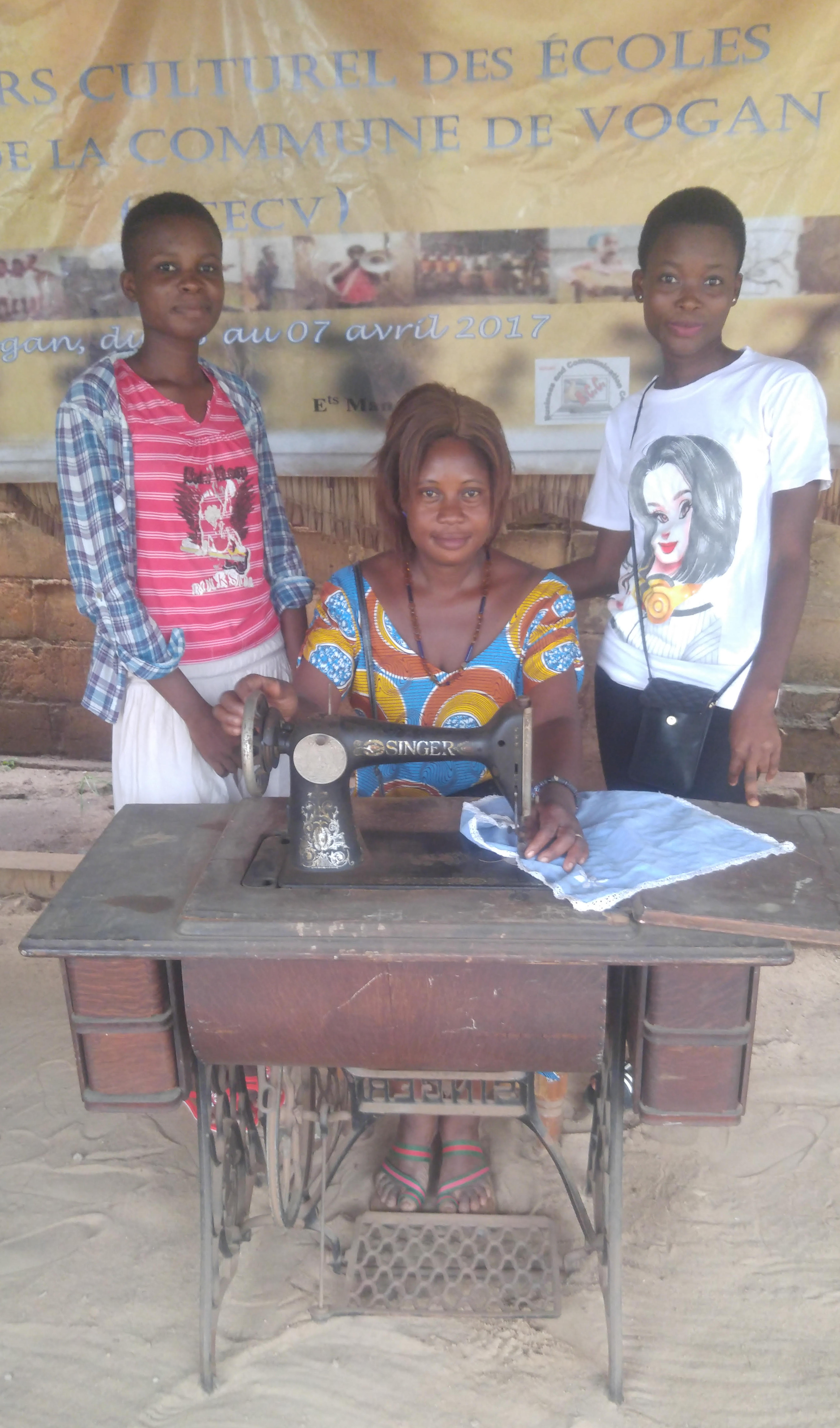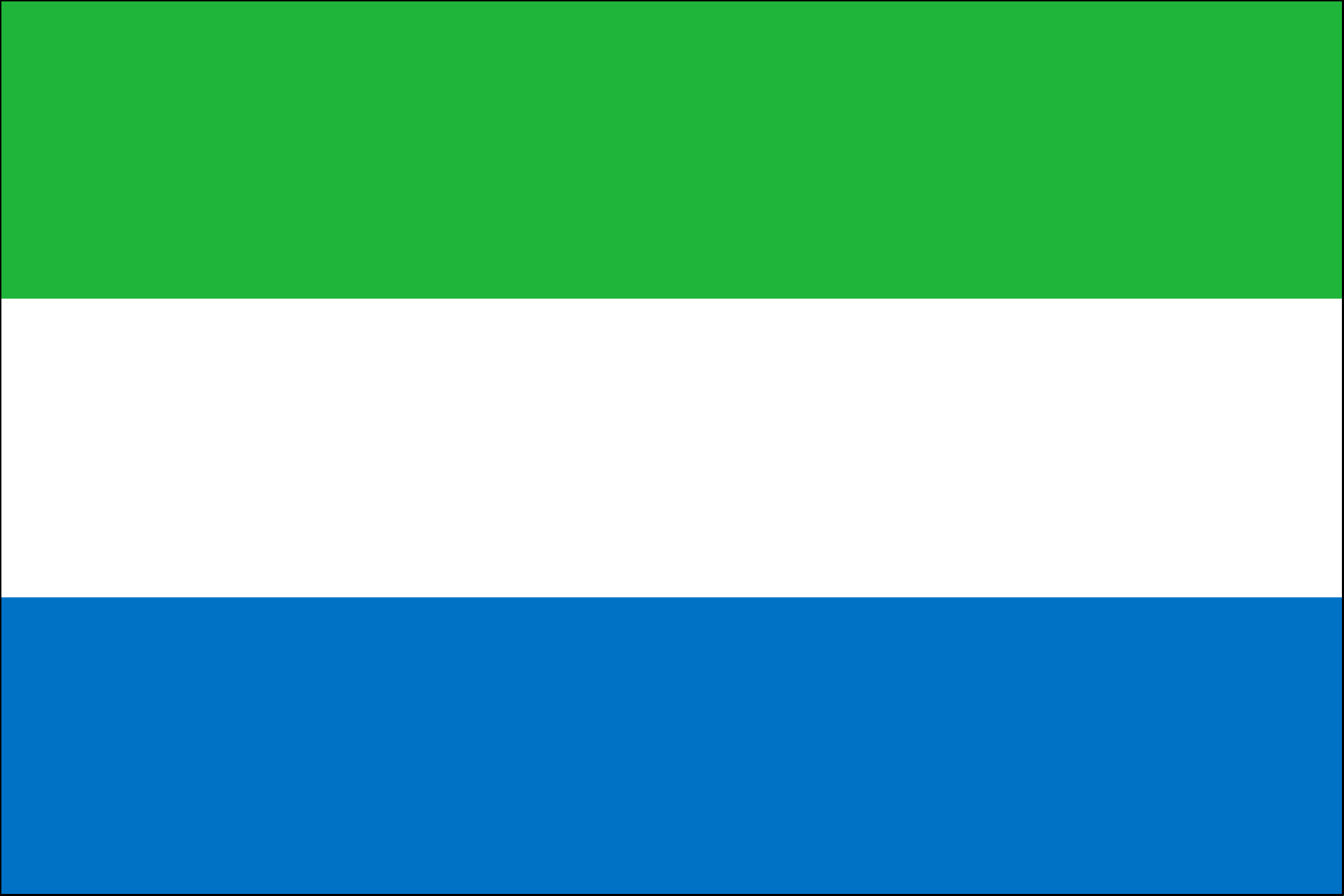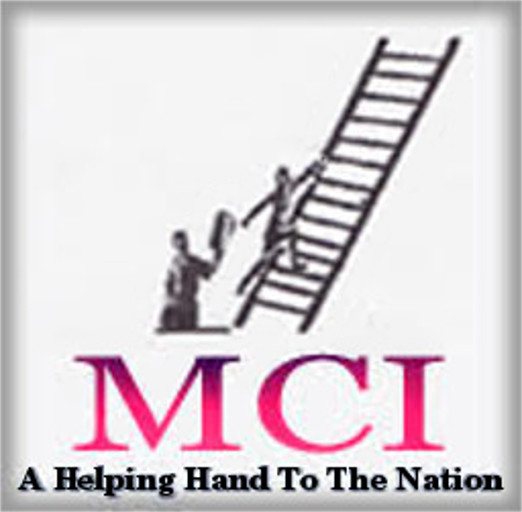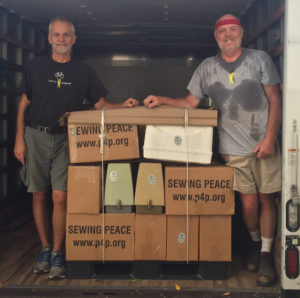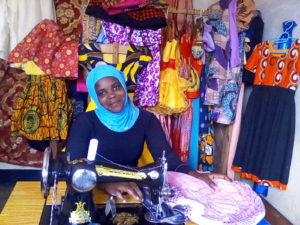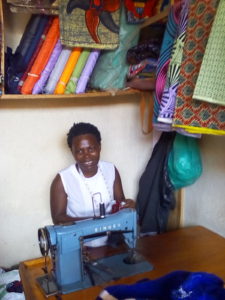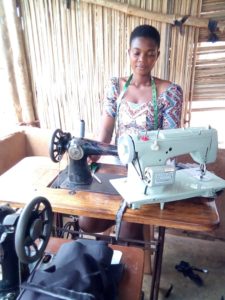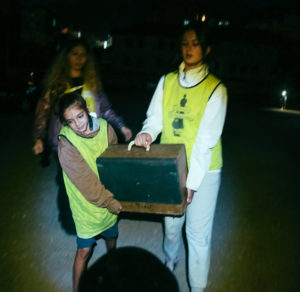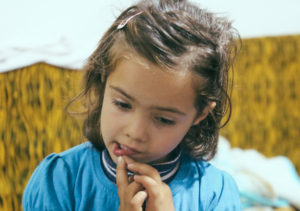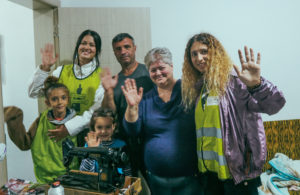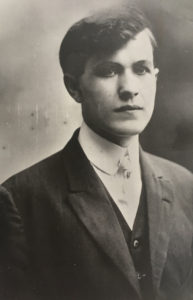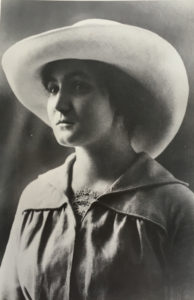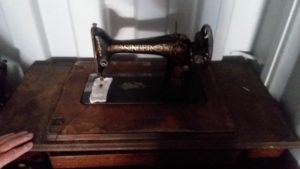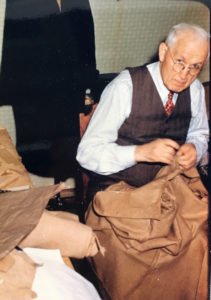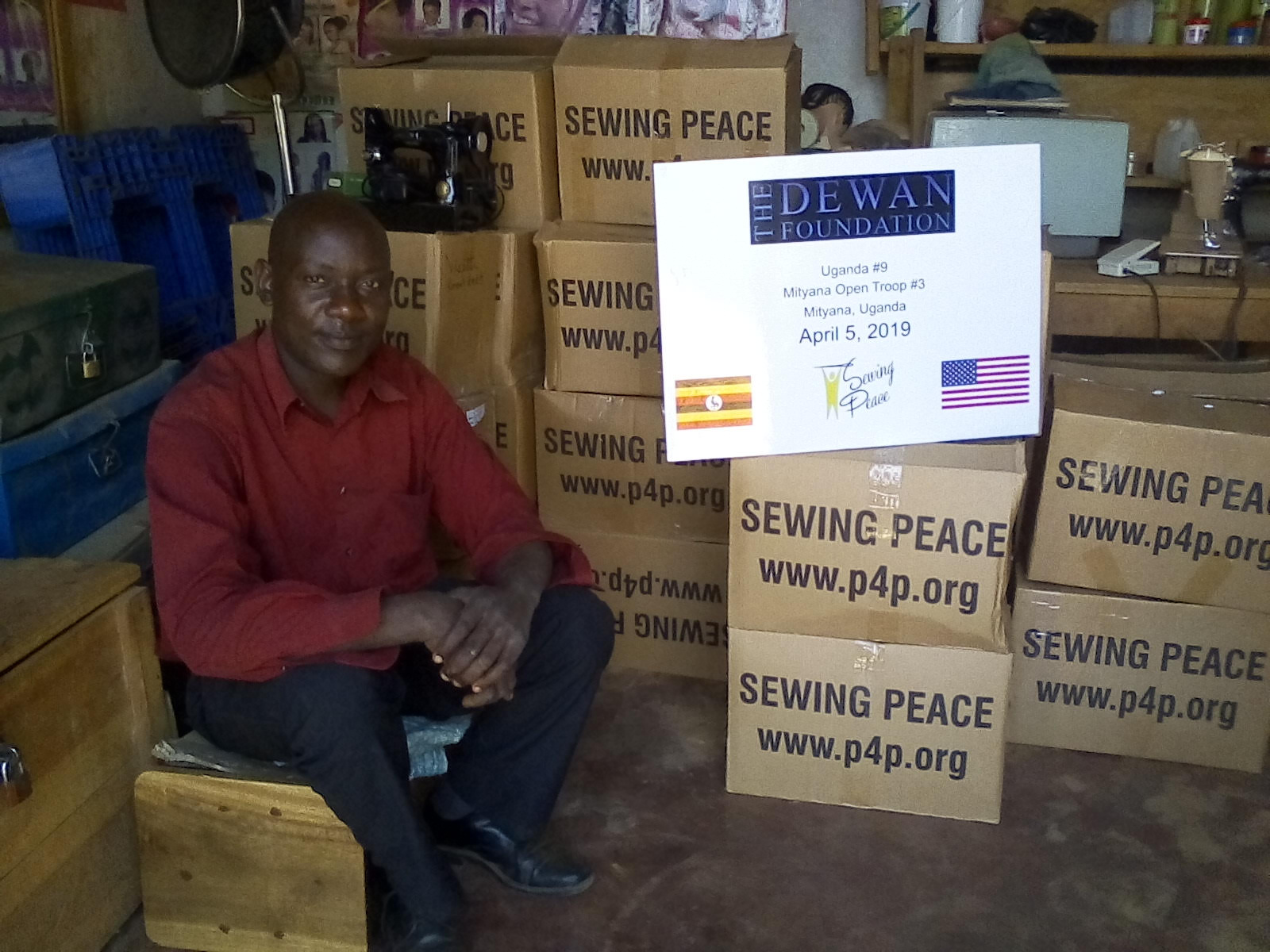By Norbert E. Mbwiliza
Fall 2019 Newsletter
[The 2019 spring newsletter described the ordeal of getting a container through the import process in Tanzania after the original destination organization went missing. Norbert E. Mbwiliza, the head of our newest partner organization in Tanzania, The Norbert and Friends Missions, battled tenaciously to get the container to his headquarters in Arusha.
Here are Norbert’s comments on their bicycle program and a few short notes from people who have gotten bikes or sewing machines.]
Our bicycle distribution was very successful and productive in Tanzania. In rural areas where low-quality bikes are the norm, P4P bicycles have earned a superior reputation. Healthcare groups, development organizations, farmers, and individuals sought to purchase our bicycles for their programs and personal use. This market demand led us to create P4P as a social enterprise subsidiary of The Norbert and Friends Missions that sells directly to those in need of reliable transportation.
There are many benefits in combining our philanthropic endeavors with an innovative social enterprise strategy: it is scalable and multiplies our organizational impact; it diversifies our revenue stream and provides funding for programs; it improves the efficiencies and cost structure of our education, healthcare, and economic development initiatives; and it creates a sustainable quality bicycle infrastructure in Tanzania.
The Norbert and Friends Missions has since built programs to provide specially designed, locally assembled bicycles for students, healthcare workers and entrepreneurs across Tanzania. While the bicycles themselves help individuals conquer distance and increase their carrying capacity, The Norbert and Friends Missions through its special P4P Program has also created new economic opportunities by training field mechanics and employing bike assemblers to support our local programs.
The P4P Bicycle Program in Tanzania has had several positive effects:
- Capacity, time, and distance: Riding a bicycle is faster and easier than walking. In fact, you transport 5x more and travel 4x faster. Also, you reach 4x further compared to walking.
- Education: A bicycle helps children to reach school faster, be more punctual and arrive fresher. A bicycle also makes a long school journey safer, particularly for girls, increasing enrollment and attendance rates. At the end of the day, more time also means more free time for homework and leisure.
- Women’s empowerment: The Norbert and Friends Missions trains young girls to become bicycle mechanics. They serve as role models for other women to become independent entrepreneurs. Women and girls suffer disproportionately from poor transport and mobility opportunities. With a bicycle, women and girls can start their own business, perform better at school, and face a brighter future.
- Business and income: Bicycles have the power to enable new business opportunities, increase business productivity, increase opportunities for trade or increase the delivery of extension services. This leads to new opportunities to generate regular income for households. People who use bikes can save money because there is no need to pay for gas or transportation.
- Healthcare: Being a fast and reliable mode of transport, bicycles improve access by the community to healthcare centers and access by health workers to the community. Riding a bicycle of course also gives our peoples legs of steel, improves their wellbeing and keeps them fit!
- Environment: A bicycle is quiet as a mouse and causes zero emissions.
Here are notes from some of the people who have benefited from our programs.
Agripina
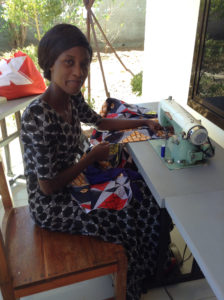 I always remember P4P because if not for them what do you think a girl like me would do??? Imagine that I — Miss Agripina — was very unemployed. P4P through The Norbert and Friends Missions has created employment for many young people and I am one of them. Now I find life a lot easier. I urge P4P donors to continue to fund this project in Tanzania through The Norbert and Friends Missions. For every P4P container, at least 400 people get support from a bicycle or sewing machine. In the youth group, most are girls who would have trouble finding safe and legal work without a sewing machine.
I always remember P4P because if not for them what do you think a girl like me would do??? Imagine that I — Miss Agripina — was very unemployed. P4P through The Norbert and Friends Missions has created employment for many young people and I am one of them. Now I find life a lot easier. I urge P4P donors to continue to fund this project in Tanzania through The Norbert and Friends Missions. For every P4P container, at least 400 people get support from a bicycle or sewing machine. In the youth group, most are girls who would have trouble finding safe and legal work without a sewing machine.
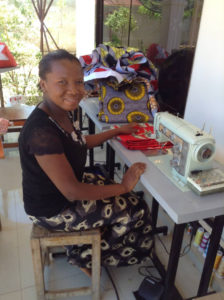 Benedeth
Benedeth
My name is Benadeth Hamisi. I am very grateful to the P4P project of The Norbert and Friends Missions for enabling me to get a sewing machine. Now I can support myself and earn my own income. Thank God. Because I work, I have avoided groups that can get me in trouble. God bless and protect you. I feel a cry of JOY.
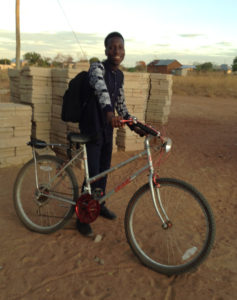
Jackson
Hello my friends. My name is Jackson Nestory. You see me here laughing because since I got this bike I can be at my brick-masonry job and take part in various social activities fearlessly. The bike has become a great tool for me because I when I’m not using the bike I can rent it to someone who wants to pay me money. Life has been great for me. Thanks to P4P and The Norbert Friends Missions for your help.
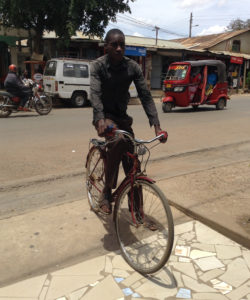 Joseph
Joseph
My name is Joseph Shija. I own a small business. As a businessman I see success because I arrive at work on time and I am not tired of traveling around many places. I enjoy my work and my community. I thank the servants of God for giving me this bike and for God’s blessing. The P4P project in Tanzania has become the voice of the voiceless. Thank you The Norbert and Friends Missions.
Suzana
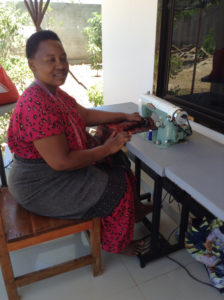 Hello. I’m called Susana. I’m a family mom. Do you know why I have a smile??? It is because P4P has changed my life. May I tell you something wonderful that has happened to me: I was unemployed, but after I got a sewing machine from The Norbert and Friends Missions I am self-employed and can take care of my family using my own income. The P4P project through The Norbert and Friends Missions has changed the lives of hundreds of people.
Hello. I’m called Susana. I’m a family mom. Do you know why I have a smile??? It is because P4P has changed my life. May I tell you something wonderful that has happened to me: I was unemployed, but after I got a sewing machine from The Norbert and Friends Missions I am self-employed and can take care of my family using my own income. The P4P project through The Norbert and Friends Missions has changed the lives of hundreds of people.
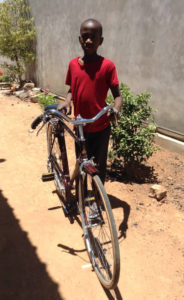 Wilson
Wilson
My name is Wilson Metusera. I thank God for being given this bike. When I was told that I was offered a free bike I was very surprised and couldn’t believe it. I’ve been getting up early to attend school for long walks. By God’s grace a P4P project was launched here in Nzega and I got cycling support. Now I can attend school, my attendance has improved, and my performance has improved. I am so happy for P4P in the USA and The Norbert and Friends Missions for showing compassion to the poor like us.
